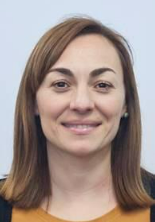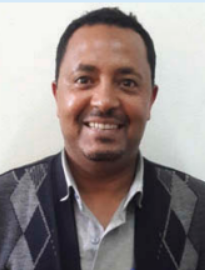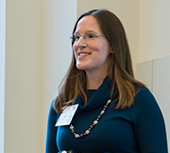
What is the ReachSci conferences about?
ReachSci conferences in STEM (science, technology, engineering, and mathematics) are an important part of the academic and research community where researchers, scientists, and other experts in various fields come together to share their research findings.
The conferences were organized with the intention to provide an outstanding international platform and community for academics and professionals to improve research training around the world. The conferences aims to provide opportunities for participants from around the globe to share the challenges they have encountered, discover what they have in common, and find new innovative solutions together. Our goal is to make this an annual conference to bring together experts and innovators from multidisciplinary fields to find new solutions which will make research training accessible to everyone.
What are the goals of the conferences?
To allow global researchers, academics, and professionals to meet and discuss both local and global research training challenges.
To create and develop innovative solutions in research training through workshops and networking.
To raise awareness about global challenges and bring together great minds to solve them.
To create a positive impact on research training.
What we achieved through these conferences?
Sharing information and knowledge: One of the main goals of conferences is to provide a platform for experts in a particular field to share their latest findings, research, and ideas with their peers. This helps to advance knowledge in that field and can lead to new breakthroughs.
Building community: assist to build and strengthen communities of professionals in a particular field, facilitating collaboration, mentorship, and support.
Networking: to provide an opportunity for attendees to meet and network with other professionals in their field, which can lead to new collaborations, partnerships, and even job opportunities.
Improving skills: containing workshops, training sessions, and other educational opportunities that allow attendees to learn new skills, techniques, and methodologies relevant to their work.
Our 2023 Conference
ReachSci 2023 Conference on Challenges and Solutions in STEM Research Training:
The conference went very well, we had students and researchers attending online and in person from 28 countries with about 200 attending in total. We had 20 speakers representing 5 contents, and 60 posters representing 20 countries in 6 contents. It was really nice to hear from professors and researchers about the challenges and barriers they face in research. Seeing many common problems was insightful, and hearing from many that collaboration was the key solution that is applied to address many solutions helped identify a key gap to explore solutions for. Our president said about the conference “Address global research challenges is difficult, but many institutions have identified solutions, we need to develop platforms to establish more collaborations that address corresponding challenges and together we will always find a way”.
The video of the 2023 conference will be shared soon.
For more details about the Conference, including the agenda and the organizing team: download the booklet now!
You can also download the students’ posters from link below (the file is very large and it will take a while to download!)
Meet our speakers
Prof. Clemens Kaminski
Professor of Chemical Physics at the University of Cambridge, UK, and head of the Department of Chemical Engineering and Biotechnology. He is Director of the EPSRC Centre for Doctoral Training in Sensor Technologies for a Sustainable and Healthy Future. He obtained his PhD at the University of Oxford, UK, in 1995.
Prof. María Fernanda Troncoso
The Director of the Laboratory of Tumor Glycobiology Laboratory at the Institute of Biochemistry and Biophysics, Researcher of the Argentinean National Research Council (CONICET) and Professor of Biological Chemistry at the School of Pharmacy and Biochemistry, University of Buenos Aires, Argentina.
Prof. Septelia Inawati Wanandi
A Professor in the Department of Biochemistry and Molecular Biology, Faculty of Medicine Universitas Indonesia (FMUI), where she has been a lecture since 1988. She has pursued the MD degree at FMUI in 1981-1987, and the Dr.rer.physiol. degree at the Philipps University of Marburg, Germany in 1991-1994.
Prof. Adesola Adetutu Ajayi
Is a Professor of Microbiology. Her area of specialization is Microbial Physiology (Enzymology) and Biotechnology. Her lecturing career spans over twenty years from the position of Graduate Assistant at the Obafemi Awolowo University, Ile Ife in 1999 to Covenant University, Ota, Ogun State, from 2006 – 2017.
Prof. Sana Ouali
MD, FESC is the director of the Arrhythmia and Electrophysiology Unit at La Rabta university Hospital (Tunis), and a professor of Cardiology at the Faculty of Medicine of Tunis. She is a Chairperson of the Electrophysiology and pacing Certification, Training Fellows, and a past coordinator of the cardiology Education Committee at the Faculty of Medicine of Tunis.
Prof. Atakilt Abebe
A professor, attended Addis Ababa University in Ethiopia (BSc in Chemistry, MSc and PhD Inorganic Chemistry). He began working as a teacher and researcher at Bahir Dar University in Bahir Dar, Ethiopia, after getting his PhD. At the moment, he teaches inorganic chemistry at Bahir Dar University in Bahir Dar, Ethiopia.
Prof. Wendy Itzel Escobedo Hinojosa
Is an Industrial Biochemical Engineer by training, she holds a Master’s degree in Biotechnology and a Ph.D. in Biomedical Sciences. During her postdoctoral stage in Mexico, she became specialized in molecular microbiology and biotechnology of marine bacteria.
Assit. Prof. Wafaa Raji Mohammed
Graduated from the Chemistry Department of Baghdad University with a Bachelor's Degree in Chemistry Science (1993-1994) as Msc. (2002) and PhD (2007) from the same university in clinical biochemistry. Currently working as a lecturer in the Applied Science Department / University of Technology –Iraq.
Prof. Roberto Anaya-Prado
Doctor of Medicine, General Surgeon and Transplant Surgeon. Master and PhD in Medical Sciences: Orientation in Molecular Biology. He has taken 12 Diplomates, 11 Postgraduate Courses and more than 200 National and International Courses. He has delivered more than 240 National and International Lectures.
Assit. Prof. Hussaen A. H. Kahachi
Is an Associate Professor of Future Cities at the Department of Architectural Engineering with 10+ experience in higher education and research. He is also the Director of the University Career Development Center at University of Technology, Iraq. He was the Managing Editor for the Iraqi Journal of Architecture and Planning (2017-2021).
SR Rsch Assoc. Dr. Jenny Molly
I am a Senior Research Associate at the University of Cambridge where I research the potential for local, distributed manufacturing of enzymes to improve access and build capacity for biological research. I am also co-founder of three social enterprises and communities to make biological tools more accessible.
Prof. Elena Gaura
is a Professor of Pervasive Computing at Coventry University. Her work concerns the inception of sensor based systems to resolve applications where intelligent real-time processing of data at source (sensing point) is critical in order to enable decision making. She is a Board of Directors Member at the UK’s Women’s Engineering Society.
Prof. Ioannis Zuburtikudis
Professor and Chair of the Chemical Engineering Department of Abu Dhabi University. Ioannis has studied and worked both in Greece and in the USA prior to coming to UAE. His research tries to identify and understand the impact nano-scaled dimensions have on material properties, and to use such insights for developing advanced materials, surfaces and processes.
Prof. Fathia Mghaieth Zghal
Chief of the department of medicine B in the Faculty of medicine, Tunis and the laboratory of echocardiography and intensive care unit in the Cardiology department of Rabta University Hospital of Tunis. President of cardiology intensive care working group of the Tunisian society of Cardiology and Cardiovascular surgery. Coordinator of the Thesis evaluation for annual thesis price committee.
Assit. Prof. Dr. Esraa Ghazy Jabar
Head of the Board of Pharmacy Department at Al-Rasheed University College.Member of the examination committee in the pharmacy department 2016-current time. Head of the Committee of Quality Classification of Educational Laboratories at Al-Rasheed University College. Head of the Section of the Educational Laboratories in the Pharmacy and Dental Departments at Al-Rasheed University College.
Dr. Lara Allen
Dr Lara Allen leads the Centre for Global Equality, a Cambridge-based organisation focused on research and innovation for sustainable development, and the Cambridge Centre for Inclusive Innovation at the Department of Chemical Engineering and Biotechnology. She has a PhD from the University of Cambridge and has worked as an academic and international development practitioner in South Africa, Kenya, Ethiopia Ireland and the UK.
Dr. Adriana Wolf Perez
I studied biochemistry in Germany, the UK and Denmark, and graduated with a PhD in Nanoscience in Jan 2019. My research focuses on the development and validation of innovative technologies for the rational design of antibody therapeutics for various diseases including neurodegeneration and autoimmune disorders. In collaboration with the University of Cambridge, ETH Zurich, Aarhus University (Denmark).
Prof. Mochamad Zakki Fahmi
Chairman Department of Chemistry, Univ. Airlangga. Associate Professor, Dept. of Chemistry, Univ. Airlangga. General Secretary of Indonesian Chemical Society (2020 – 2023). He earned his PhD from National Taiwan University of Science and Technology, Taiwan where he worked on Simple Phase Transfer Methods on Providing Water-Soluble Nanoparticles for Cancer Cell Detection and Therapeutics.
Dr. Clett Erridge
Clett is a Senior Lecturer in Immunology. His research aims to establish the molecular mechanisms connecting inflammation to lipid metabolism, particularly in the context of coronary artery disease. He also has an interest in exploiting aspects of the innate immune system to promote the phagocytosis of tumour cells by macrophages. Clett completed his BSc in Molecular Biology (1997).
Sarah Barron
Sarah Barron is a PhD student in the Bioelectronic System Technologies Group at the Department of Chemical Engineering and Biotechnology. She holds a BSc in Neuroscience and an MSc in Brain Imaging, from the University of Nottingham, and an MRes in Sensor Technologies and Applications from the University of Cambridge.
ReachSci 2023 Conference on Challenges and Solutions in STEM Research Training
The Conference was held at the Department of Chemical Engineering and Biotechnology, University of Cambridge, UK
Audience Feedback
“The ReachSci conference offered a valuable opportunity for participants to connect with others who are enthusiastic about science education and communication as well. It provides a platform for sharing knowledge and best practices, as well as a chance to collaborate and develop imaginative solutions to pressing issues in the scientific community.”
“The conference was quite the experience, I learnt much from it regarding many things research related, and where does research stand globally nowadays, I also enjoyed it and had fun attending it thanks to the friendly and welcoming atmosphere.
Great work by the organizing team.”
Our 2021 Conference
ReachSci 2021 Conference on Air Quality:
ReachSci’s first international conference was held online, on September 20, 2021. The conference was a tremendous initiative as it was the coronation of the first Mini-PhD programme launched by ReachSci. It targeted an interesting scope of research, Air Quality, that was approched from different perspectives and channeled through four experimental studies carried out by participating students including ReachSci’s Mini-PhD programme student team along with another presentation by Open-Seneca. The conference was chaired by ReachSci President, Mohammed Alawami, and it hosted other professors and researchers specialized in relevant fields from different universities who showcased their own opinions on Air Quality in Keynote talks that each tackled a distinct and insightful aspect on the respective theme, as detailed in the agenda. The conference was a fruitful experience for our students on two levels: it outlet innovative thoughts manifested through the experiments that they conducted, and it was an opportunity to learn and gain more insights from the hosted professionals, as one of our students described her experience,“I was introduced to a whole new aspect of Science and Research.” Furthermore, it was an ideal platform to contribute findings from the results arrived at into initiating global solutions to improve the Air Quality.
Meet our speakers
ROY M. HARRISON
Centenary Professor at the University of Birmingham, UK
Roy Harrison’s research interests lie in the field of environment and human health. His main specialism is in air pollution, from emissions through atmospheric chemical and physical transformations to exposure and effects on human health. Much of this work is designed to inform the development of policy.
REBECCA K. SAARI
Assistant Professor at the University of Waterloo, Canada
Dr. Saari studies the consequences of climate change and climate policy on human health and environmental inequality. She has 11 years of post-graduate experience in air pollution and air quality modelling at the University of Toronto (2), AECOM (3), Environment and Climate Change Canada (1), and MIT (5). As a professional air quality engineer in Ontario, she completed projects in seven Canadian provinces and territories. Dr. Saari has employed economic models, emissions models, atmospheric chemical transport models, and health response models to assess the costs and co-benefits of climate policy, energy policy, and transportation policy.
BRIAN CAULFIELD
Associate Professor at Trinity College Dublin, Ireland
Dr Caulfield has embarked on an intensive research program addressing global issues such as the environmental impacts of transport and methods to reduce the carbon impacts of transport and in 2017 he addressed the Irish Citizens Assembly on this topic. He recently provided advice to the Climate Change Advisory Council on pathways to decreasing transport emissions by 2030. Dr Caulfield is currently a member of the Steering Group for the review and update of the GDA Transport Strategy with the National Transport Authority.
ReachSci 2021 Conference on Air Quality
The conference was held virtually.
























